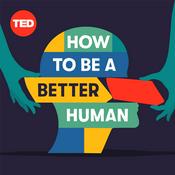LSE: Public lectures and events

333 episodios

The ins and outs of sustainable supply chains
11/12/2025 | 1 h 17 min
Contributor(s): Professor Rocco Macchiavello | Join Rocco Macchiavello in his inaugural lecture as he explores the economics of sustainable supply chains. Presenting insights from over a decade of research, Professor Macchiavello will examine how companies can organise supply chains that are sustainable and resilient, creating value for stakeholders beyond the organisation's boundaries. He will draw from rigorous, data-driven, research, illustrated through concrete case studies of large companies’ sourcing strategies in export-oriented agricultural commodities and manufacturing sectors.

Common law: a better foundation for Liberalism
09/12/2025 | 1 h 30 min
Contributor(s): Professor John Hasnas | In conventional political philosophy, law is understood as consciously created rules that are a necessary mechanism for regulating the excesses of the free market. Although coercive in nature, law is seen as a necessary defence against anarchy. But is the situation that simple? In his examination of the purpose and functioning of the legal system, John Hasnas challenges this false dichotomy, presenting a new theory of liberalism that demonstrates that the common law can serve as an effective alternative to traditional politically created legislation.

Women in economics: progress, challenges and perspectives
08/12/2025 | 1 h 23 min
Contributor(s): Janet Henry, Clare Lombardelli, Professor Almudena Sevilla | Despite decades of progress, women remain underrepresented in the field of economics. This event explores the gender disparities in the discipline and what this means for economics and society. Our speakers share research on women in economics, insights from their own experiences and advice for those wanting to make a career in economics. What challenges face women economists at different stages in their careers? What progress has been made? What changes are needed now?

Economic impacts and legacies of British rule in India
04/12/2025 | 1 h 27 min
Contributor(s): Professor Bishnupriya Gupta | In her latest book An Economic History of India: Growth, income and inequalities from the Mughals to the 21st century, Bishnupriya Gupta builds a new framework for understanding the economic impacts and legacies of British Rule, which she will discuss in this public event. Using concepts and theories from economics and economic history alongside extensive new data, she charts India's transition from precolonial economy to colonial rule and evaluates its economic performance from a comparative perspective, particularly in the context of the Great Divergence between Europe and Asia. She examines India's post-independence economy and the evolution of social and economic inequality through to the turn of the twenty-first century.

The politics of hunger in Sudan
03/12/2025 | 1 h 24 min
Contributor(s): Dr Nisrin Elamin | The ongoing war in Sudan has produced the world’s largest humanitarian and hunger crisis—devastating a country that could easily feed itself and its neighbours. As millions of Sudanese face starvation, global markets are also experiencing a surge in the value of key Sudanese commodities such as gold, gum Arabic and livestock that are smuggled out of the country to places like the UAE, Egypt and Kenya. This talk situates Sudan’s current famine within a broader historical context of neoliberal economic restructuring, US aid policies, foreign land investments and resource extractivism. It traces how this history is connected to the current dismantling of rural livelihoods and agricultural infrastructures and to the ongoing resource extraction facilitated by this war. Using food insecurity and hunger as a lens, the talk examines the role of foreign-particularly Gulf-actors in fuelling and sustaining the war.
Más podcasts de Educación
Podcasts a la moda de Educación
Acerca de LSE: Public lectures and events
Escucha LSE: Public lectures and events, Dr. Mario Alonso Puig y muchos más podcasts de todo el mundo con la aplicación de radio.es

Descarga la app gratuita: radio.es
- Añadir radios y podcasts a favoritos
- Transmisión por Wi-Fi y Bluetooth
- Carplay & Android Auto compatible
- Muchas otras funciones de la app
Descarga la app gratuita: radio.es
- Añadir radios y podcasts a favoritos
- Transmisión por Wi-Fi y Bluetooth
- Carplay & Android Auto compatible
- Muchas otras funciones de la app


LSE: Public lectures and events
Descarga la app,
Escucha.







































